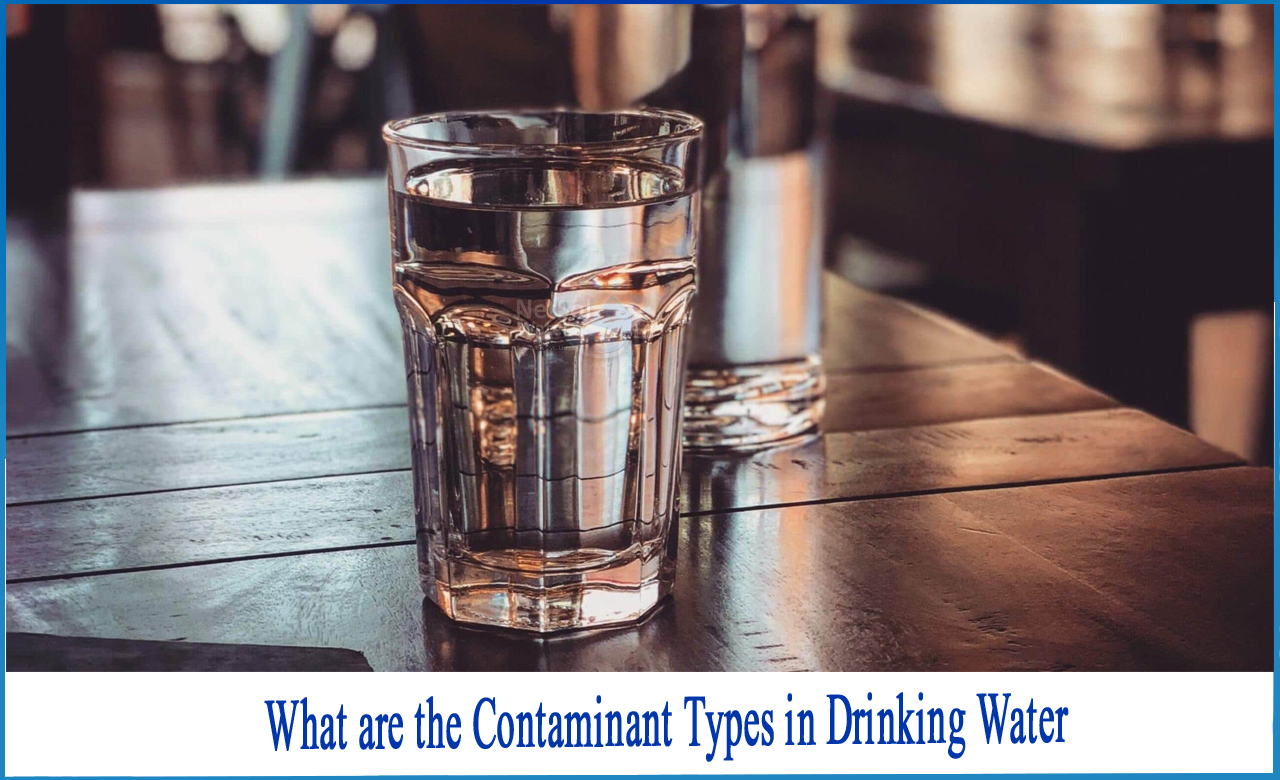Water contamination is an issue that affects people all around the world!
These might be either geological or man-made in nature.
Natural contaminant kinds and concentrations are determined by the geological materials through which groundwater travels and the quality of the recharge water. Groundwater travelling through sedimentary rocks and soils can pick up a variety of substances, including magnesium, calcium, chloride, arsenate, fluoride, nitrate, and iron; hence, the influence of these natural contaminants is dependent on their kind and concentration.
Pathogens such as bacteria, viruses, and parasites such as microscopic protozoa and worms are examples of microbial pollutants. These living organisms can be transmitted by human and animal wastes, either intentionally or unintentionally.
Some contaminants are easily discovered by examining the water's colour, odour, turbidity, and taste. Most, however, are difficult to detect and necessitate testing to determine whether or not the water is poisoned. As a result, the pollutants may cause an unpleasant taste or odour, discoloration, and health problems.
What are the Contaminant types in drinking water?
In general, there are four categories of toxins involved with water pollution-
• Organic pollutants,
• Inorganic pollutants,
• Biological pollutants,
• Contaminants with radioactivity.
1: Inorganic Contaminants
Chemical parameters can also be used to detect the presence of pollutants. The hardness of drinking water is a naturally occurring contaminant that is mostly determined by geographical location. It is caused by considerable amounts of calcium or magnesium components; depending on what molecules are paired with calcium or magnesium, the hardness is classed as carbonate or non-carbonate hardness.
2: Organic Contaminants
Pesticides, residential garbage, and industrial wastes, among other things, are major anthropogenic causes of organic pollution. Organic material contamination can lead to major health issues such as cancer, hormone disturbances, and nervous system disorders.
• Pesticides contaminate agricultural and public hygiene sources. These used in agriculture have negative environmental and public health implications due to inappropriate handling and application. They are meant to engage with several chemical reactions in the chemistry of the pest's living body. Unfortunately, all pesticides may interfere with the metabolism of non-targeted living organisms as a result of this.
• VOCs include solvents and organic chemicals such as toluene, benzene, styrene, trichloroethylene (TCE), and vinyl chloride, among others, as well as degreasers, adhesives, gasoline additives, and fuel additives.
• Dyes are one of the most significant classes of chemical compounds that are causing rising environmental concern. The discharge of contaminated water into the environment is a significant source of non-aesthetic pollution and eutrophication, which can result in harmful consequences from oxidation, hydrolysis, or other chemical reactions occurring in the wastewater phase.
3: Contaminants of biological origin
The presence of live creatures in water, such as algae, bacteria, protozoans, or viruses, causes biological pollution. Algae are single-celled, tiny organisms. These are abundant and rely on nutrients in the water. Nutrients are typically derived from home runoff or industrial pollutants. Excess algae growth not only causes taste and odour problems in water, but it also clogs filters and causes unpleasant slime growths on carriers.
4: Contaminants with radioactivity
Radioactive elements are the source of radiological pollutants. Sources of radioactive material could include soils or rocks through which water flows, as well as industrial waste. Erosion of natural deposits of some (radioactive) minerals may produce radiations. Radiological elements are more prevalent in groundwater than in surface water. All types of radioactive pollution raise the risk of developing cancer.
What do we offer?
Netsol Water is a renowned producer of water and wastewater treatment plants. We have a reputation for being the top commercial RO plant manufacturer, industrial RO plant manufacturer, sewage treatment plant manufacturer, effluent treatment plant manufacturer, and much more. Aside from that, our USP is 24x7 customer assistance.
For further inquiry, or product-purchase-related questions, give us a call on +91-9650608473 or email at enquiry@netsolwater.com.



